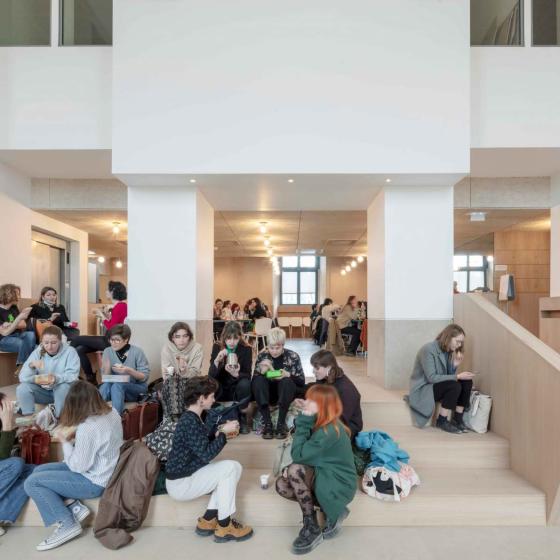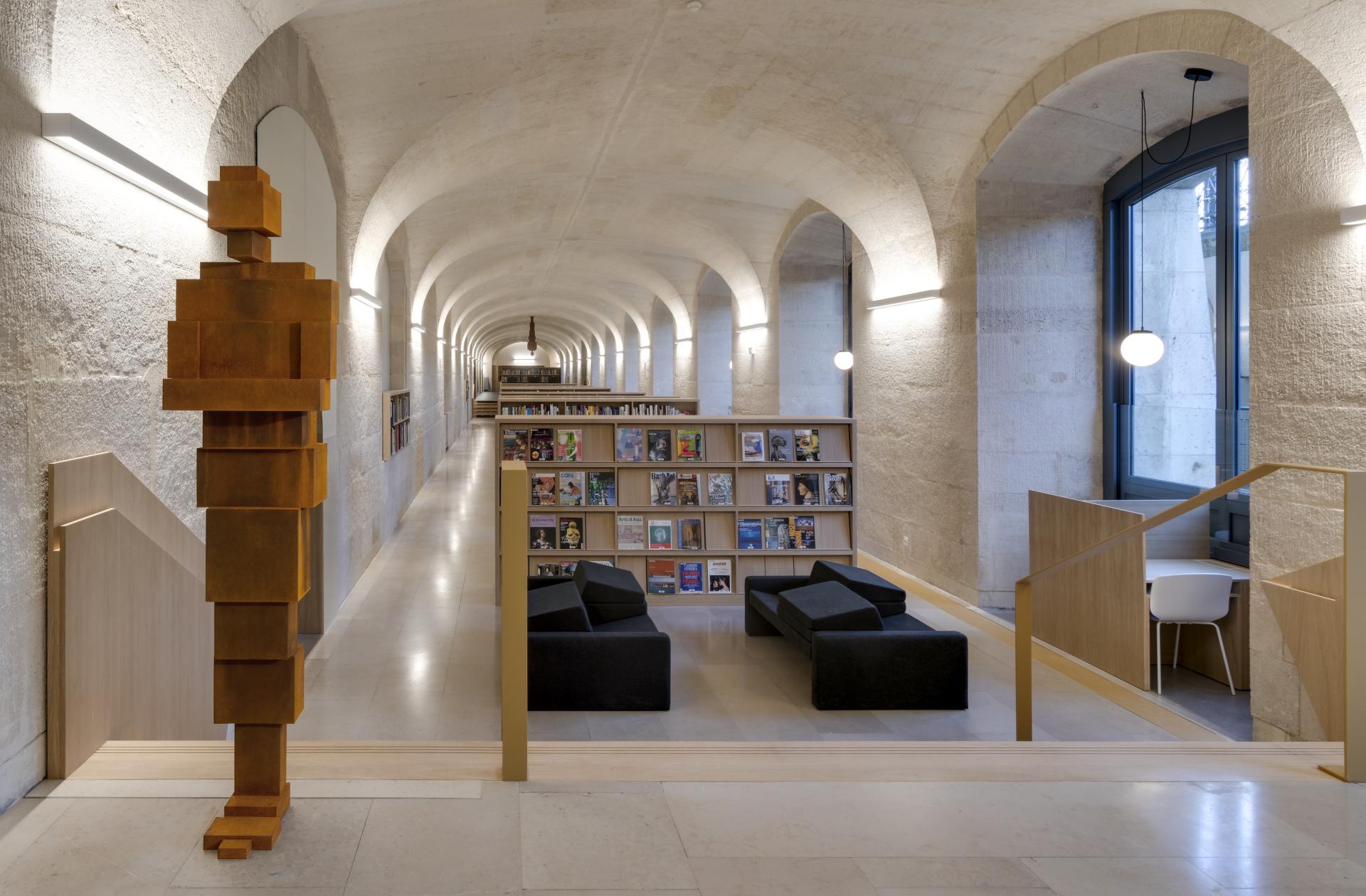
Masters degree – first year
Back to school day
Monday 11 September 2023 8AM À Paris, en amphiHow to register
Admission for students from the École du Louvre:
The first year of the second cycle is available to students who have received the “First Cycle Diploma of the École du Louvre”, obtained in four years maximum, with an average grade of 14/20 in the third-year specialising course exam.
Admission for external students:
Requests for admission by equivalence can be made by students from French or foreign universities or higher education establishments.
The online application form is available from mid-April.
After submission of the form, the student’s full application file must be returned by May 31, no later.
Complete the online application form.
Selection criteria:
- Academic level
- Adequacy of the chosen course with the candidate's cover letter which must be detailed and argued (a simple interest in the profession(s) for which the training can prepare is not enough)
- Registration fee (2023-2024): 633 euros.
- Special rate for further education interns.
External students cannot attend this course.
Nature of teaching
The course offers an analytical and critical approach to the scientific, administrative and technical sectors linked to the conservation, study, presentation and dissemination of heritage.
It includes art history teaching and initial research experience.
It is organised in two semesters.
Collaborations with foreign universities are available:
First semester
History of collections, museums and heritage in Europe (in English)
Administration and management of heritage and museums
Introduction to mediation and audiences
Museology
Principles of conservation-restoration
Art history, diachronic subject
Historiography
Research methodology
Throughout the academic year, the student works on a dissertation under the supervision of a teacher, according to various disciplinary areas. Each student participates in a research group which they receive methodological support from.
25 research groups are proposed:
- Middle Ages
- Arts of the Renaissance and Modern Times
- Arts from 1848-1914
- History of photography
- Lives of artists and history of works in the collections of the National Museum of Modern Art-CCI in the 20th century
- “Come from elsewhere”: international migrations, cultural transfers, travel, exiles and exchanges in art in France from 1950 to the present day
- History of Museology: actors, issues and objects
- History of museums and ideas in modern and contemporary times
- Archaeology and museography: Egyptian and oriental archaeology
- Archaeology and museography: Greek, Etruscan and Roman archaeology
- History of the Centre Georges Pompidou
- Movie theatre
- Public policy and mediation systems
- Social and cultural anthropology of Europe
- Collections of arts and civilisations from Africa, Asia, Oceania and the Americas
- Asian arts
- History of fashion, clothing and textiles
- Preventive conservation
- Conservation-restoration
- Architectural and landscape heritage
- Versailles
- History of the Louvre
- Art in times of war
- Historical monuments
- German
- English
- Spanish
- French (as a foreign language)
- Italian
Second semester
12 seminars offered:
- Archaeology: from excavation to exhibition
- The new Museum of Man - Reinventing the subject
- Museography at the service of mediation in the spaces of the CNCS
- Showing the city and its inhabitants: the exhibition, between objects and ideas
- Versailles: museographic and cultural choices for a major heritage site
- A museographic challenge: scenography
- Louvre conservation centre (Liévin) and Louvre-Lens Museum
- The Museum of French Monuments: what works are we talking about?
- Renovate, expand, build a museum: when? how? with whom?
- The MAC/VAL: supporting, producing and preserving an art in the making
- The Army Museum: the construction sites of the Army Museum
- Fontainebleau Castle
Students choose two seminars in the field of mediation and/or conservation-restoration (objects).
An optional seminar chosen from those the Ecole du Louvre or partner institutions offer (see programme).
Throughout the academic year, the student works on a dissertation under the supervision of a teacher, according to various disciplinary areas. Each student participates in a research group from which they receive methodological support.
25 research groups are proposed:
- Middle Ages
- Arts of the Renaissance and Modern Times
- Arts from 1848-1914
- History of photography
- Lives of artists and history of works in the collections of the National Museum of Modern Art-CCI in the 20th century
- “Come from elsewhere”: international migrations, cultural transfers, travel, exiles and exchanges in art in France from 1950 to the present day
- History of Museology: actors, issues and objects
- History of museums and ideas in modern and contemporary times
- Archaeology and museography: Egyptian and oriental archaeology
- Archaeology and museography: Greek, Etruscan and Roman archaeology
- History of the Centre Georges Pompidou
- Movie theatre
- Public policy and mediation systems
- Social and cultural anthropology of Europe
- Collections of arts and civilisations from Africa, Asia, Oceania and the Americas
- Asian arts
- History of fashion, clothing and textiles
- Preventive conservation
- Conservation-restoration
- Architectural and landscape heritage
- Versailles
- History of the Louvre
- Art in times of war
- Historical monuments
- German
- English
- Spanish
- French (as a foreign language)
- Italian
Grades and tests
First semester: students will be evaluated according to the grades they will get throughout the semester, as well as according to an end-of-semester test.
Second semester: students will be evaluated according to the grades they will get throughout the semester, as well as according to their dissertation and dissertation defence for the second semester.
The evaluation gives rise to the award of credits (ECTS), 30 credits per semester, 60 credits being necessary to validate the school year.
The “Diplôme de museologie de l’École du Louvre” rewards this first year.
Contact
01.55.35.18.00 (general information)

